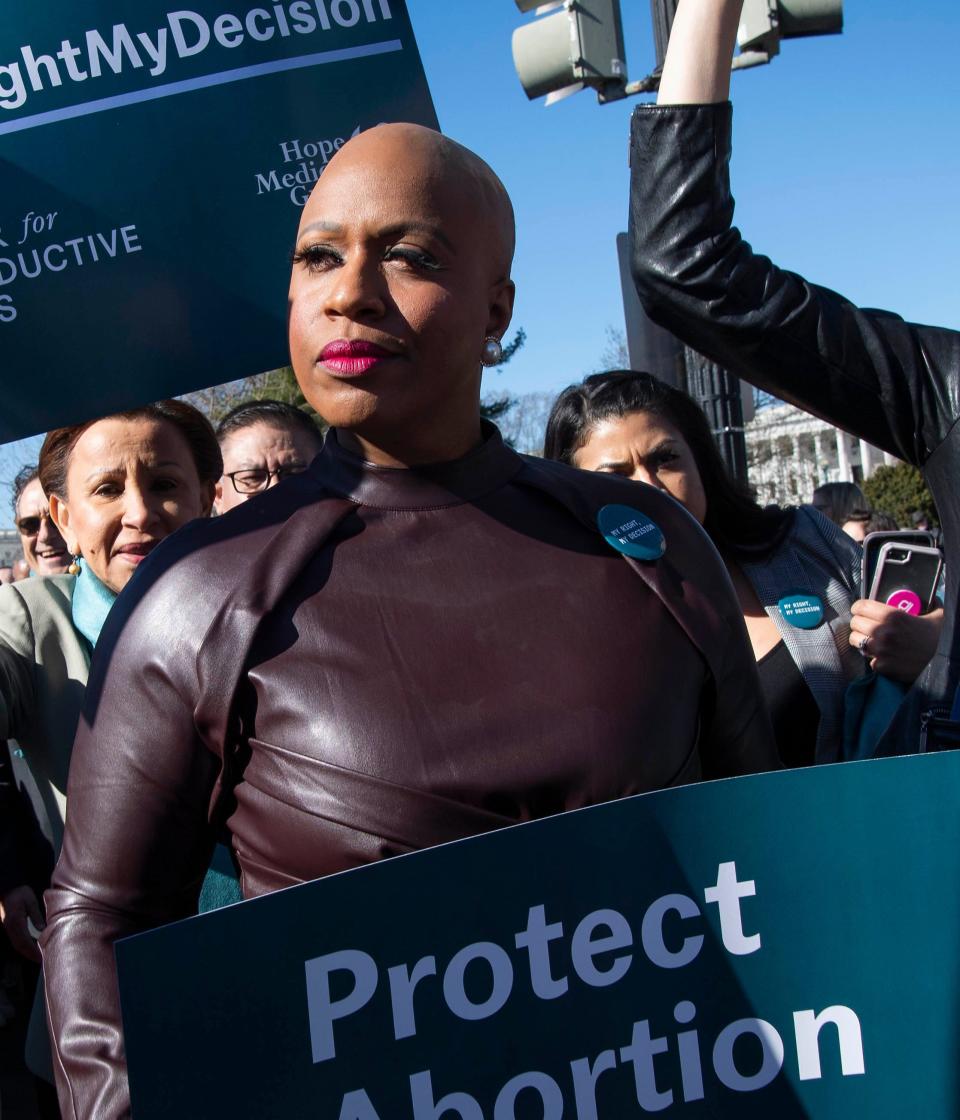Exclusive: Black congresswomen urge Biden to declare public health and national emergency around abortion
A group of 20 Black congresswomen wrote a public letter Friday to President Joe Biden , insisting he protect access to abortion by "declaring a public health and national emergency," amid the expectedoverturn of the landmark 1973 Roe v. Wade decision that legalized abortion.
The coalition, led by Rep. Ayanna Pressley, D-Mass., chair of the Pro-Choice Caucus’ Abortion Rights and Access Task Force, are all Democratic members in the House of Representative and members of the Congressional Black Caucus.
The lawmakers urge Biden "to use any and all executive authorities to address the public health crisis our nation will face if Roe v. Wade is dismantled."
If the Supreme Court overturns the landmark decision, the congresswomen stress, it "will obliterate legal abortion rights across the nation and exacerbate multiple public health crises disproportionately impacting Black communities."

'We can never go back': Leaked opinion mobilizes Black women around abortion rights
Associate Justice Samuel Alito's draft opinion in Mississippi's 15-week abortion ban, was leaked to Politico in early May, prompting fierce criticism and activism from people who support abortion rights.
"The effects of this decision on the lives and health of Black women and pregnant people will be devastating and require an urgent and whole-of-government response," the lawmakers wrote if the high court does strike down Roe.
From Jan. 1 to May 25, 541 abortion restrictions were introduced in 42 states and 88 abortion bans were introduced in 31 states, according to the Guttmacher Institute, a research organization that studies and advances sexual and reproductive health rights.
Senate Minority Leader Mitch McConnell, R-Ky., told USA TODAY last month that a nationwide ban on abortion is "possible."
Roe v. Wade is personal: Seven members of Congress, seven personal stories of abortion as Roe v. Wade hangs in balance
A lack of access to abortion will have a more devastating impact on Black women, the lawmakers told Biden.
"Black women are more likely to live and seek abortion services in the South and in other states where abortion would be automatically banned after a Supreme Court decision to overturn Roe," they write.
Black women are also three times more likely to get an abortion than white women, according to data from the Centers for Disease Control and Prevention.
They are also “nearly two and a half times more likely to die from childbirth than were white women,” according to an amicus brief filed by the National Birth Equity Collaborative and other organizations in support of the Dobbs v. Jackson Women’s Health case. It's this case that could spell the end of Roe.
"These unprecedented and calculated attacks on our bodily autonomy are a direct affront to the lives and freedom of Black women," the lawmakers wrote.
Abortion laws: Online data, medical records could be used to put women in jail
Beyond that, Black women disproportionately face a maternal health crisis. The mortality rate of Black moms increased from 44 deaths to 55 deaths per 100,000 during the first year of the pandemic, according to the CDC.
"Declaring a public health emergency and national emergency will allow your Administration to utilize additional flexibilities, deploy resources where necessary and act with the urgency that this moment requires," wrote the lawmakers.
Roe v. Wade: Supreme Court ruling poised to trigger maze of state abortion laws
The letter is signed by 20 Democratic Representatives:
Ayanna Pressley of Massachusetts
Cori Bush of Missouri
Barbara Lee of California
Alma Adams of North Carolina
Joyce Beatty of Ohio
Brenda Lawrence of Michigan
Gwen Moore of Wisconsin
Yvette Clarke of New York
Ilhan Omar of Minnesota
Bonnie Watson Coleman of New Jersey
Nikema Williams of Georgia
Terri Sewell of Alabama
Jahana Hayes of Connecticut
Lisa Blunt Rochester of Delaware
Marilyn Strickland of Washington
Eleanor Holmes Norton of the District of Columbia
Shontel Brown of Ohio
Lucy McBath of Georgia
Karen Bass of California
Stacey Plaskett of the United States Virgin Islands
This article originally appeared on USA TODAY: Abortion: Black congresswomen ask Biden to declare national emergency


